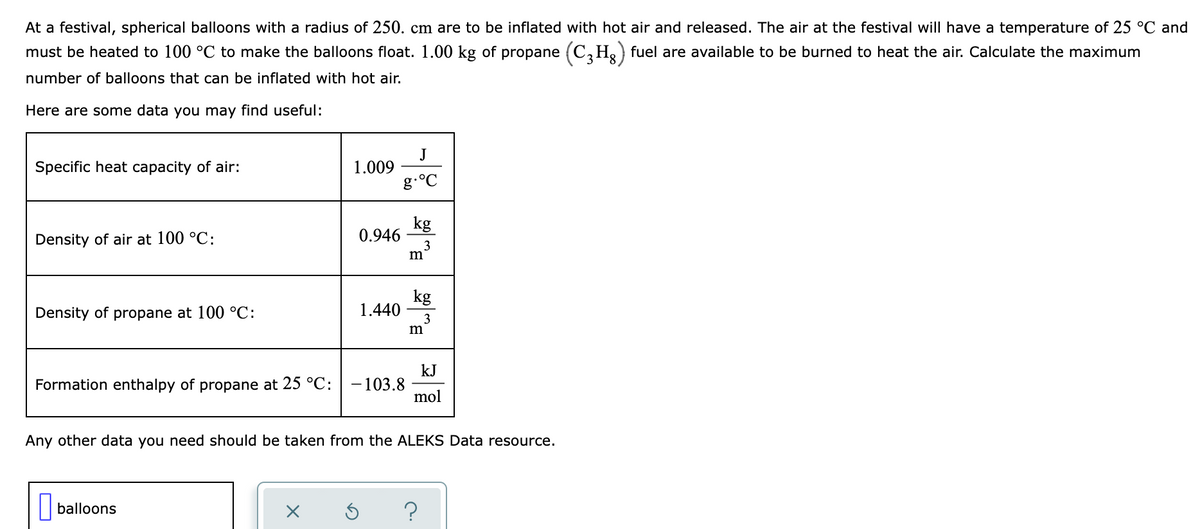At a festival, spherical balloons with a radius of 250. cm are to be inflated with hot air and released. The air at the festival will have a temperature of 25 °C and must be heated to 100 °C to make the balloons float. 1.00 kg of propane (C,H.) fuel are available to be burned to heat the air. Calculate the maximum number of balloons that can be inflated with hot air. Here are some data you may find useful: J 1.009 g.°C Specific heat capacity of air: kg 0.946 Density of air at 100 °C: m kg 1.440 Density of propane at 100 °C: 3. m kJ Formation enthalpy of propane at 25 °C: -103.8 mol Any other data you need should be taken from the ALEKS Data resource. balloons
Thermochemistry
Thermochemistry can be considered as a branch of thermodynamics that deals with the connections between warmth, work, and various types of energy, formed because of different synthetic and actual cycles. Thermochemistry describes the energy changes that occur as a result of reactions or chemical changes in a substance.
Exergonic Reaction
The term exergonic is derived from the Greek word in which ‘ergon’ means work and exergonic means ‘work outside’. Exergonic reactions releases work energy. Exergonic reactions are different from exothermic reactions, the one that releases only heat energy during the course of the reaction. So, exothermic reaction is one type of exergonic reaction. Exergonic reaction releases work energy in different forms like heat, light or sound. For example, a glow stick releases light making that an exergonic reaction and not an exothermic reaction since no heat is released. Even endothermic reactions at very high temperature are exergonic.

Trending now
This is a popular solution!
Step by step
Solved in 2 steps with 2 images









